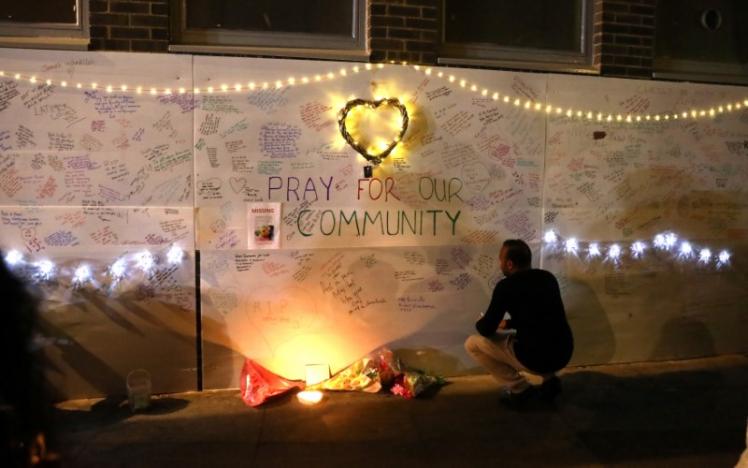The Grenfell Tower fire: Again, the victims are the poor – and we should be angry

The true scale of the horror may not be known for weeks. At the time of writing at least 17 people are known to have died in the Grenfell Tower in West London.
With flames still being tackled over 24 hours since the fire was initially reported it's hard to comprehend the scale of the devastation.
Tributes are pouring in for the fire service whose bravery in running into the inferno is almost incomprehensible. We also learn of the thousand acts of kindness offered by neighbours, local churches and other faith communities. 'We can marvel at the signs of the Kingdom of God,' said the acting Bishop of London, 'expressed in the neighbourliness and care that has been evident in the lives of people of all faiths and none in the local community and beyond.'
This is undoubtedly true and, just like in the recent terror attacks in London and Manchester, focusing on the good in the aftermath of such tragedy is a commendable instinct.
We also need, though, to focus on why this happened and why so often those affected by tragedies are those at the bottom end of the social ladder.
There will be a painstaking investigation into what happened and where culpability lies for the fire. We hope and pray that justice will be done and will be seen to be done. Yet even a thorough and open process won't bring back the lives lost and the homes incinerated.
'The fire is here now, goodbye,' wrote the first named victim, a Syrian refugee called Mohammed al-Haj Ali. The horrific carnage of the Syrian civil war behind him, he was killed by smoke in the supposed safety of West London. A refugee who fled the carnage of Assad's barrel bombs and torturers and the horror of ISIS only to be killed in the UK. It beggars belief.
A local pastor, Danny Vance from Notting Hill Community Church, was quoted by the press suggesting that the victims of the fire died, because they were poor. 'The disparity in this country between rich and poor is disgusting,' he said. 'This would not have happened in those £2m, £5m flats around the corner.'
Vance went on, 'This isn't a surprise to me. Anyone who's worked anywhere in the inner city – this isn't a surprise. The poor are constantly neglected.' The anger in his words is palpable. 'Things like this are going to keep happening if the poor are ignored in this city,' he added.
While we need to wait for the official investigation for the findings in this case, the howl of rage from Dann Vance is not only understandable, it is justified.
From helpless civilians in Yemen and Syria, to the Christians persecuted in Pakistan, to the forgotten working class in the Rust Belt of America there is a running theme. Those without power and influence are the ones who are affected worst, by natural and man-made disasters.
The consequences of being poor and living in a deprived part of the UK are stark. People in poorer areas die younger than those in richer areas, children from poorer backgrounds lag at all stages of education, while one expert said, 'Paediatricians around the country are telling us that poverty is affecting the health of children in a way we haven't seen before. Meanwhile, a third of children in the UK are now living in relative poverty.
'This is corporate manslaughter and people must be held to account.' Tweeted Labour MP David Lammy, who grew up in social housing in North London. His anger over the Grenfell Tower fire will be felt by many, regardless of whether there is technical liability.
The Hebrew prophets brimmed with rage at injustice throughout the pages of the Bible. 'Woe to him who builds his house by unrighteousness, and his upper rooms by injustice,' rails the Prophet Jeremiah. But it isn't just the prophets. 'The rich rules over the poor, and the borrower is the slave of the lender,' says Proverbs 22. 'Whoever sows injustice will reap calamity, and the rod of anger will fail. Those who are generous are blessed, for they share their bread with the poor.' This is a constant theme of the Bible.
We may not yet have full details of the terrible events in West London, but we do know that, as it always has, being poor makes life far more precarious than being rich. That should be an affront to us all. It's an affront to the faith we proclaim.











